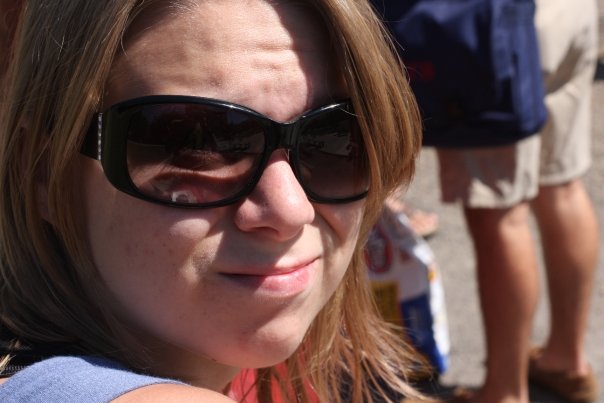I was holding babies this morning because 6 of us (we were spread out among various non-profits for the day) visited Inthemba Lethu (meaning "I have a destiny"), an orphanage for AIDS-orphaned children and babies. A few of the children were HIV+ themselves. Situated in a fairly nice part of town, the orphanage occupied two houses and an office building. Each house had rooms for the children, and each child had his own crib or bed. Most kids that were old enough were gone to school for the day, so all the ones we were with were about 1-2 years old. We only had 6 or so to care for, and as the day progressed the kids dropped like flies, one by one falling asleep in our arms. The "garden" (playground/yard) had plenty of toys and lots of playground equipment (many made of repurposed tires, pretty cool). The babies really liked to be cuddled, though that might have just been due to sleepiness. I rocked and held and walked until my arms hurt, but these were adorable babies, and each with his or her own personality.
One girl was other than the babies and had been kept home from school for the day due to sickness. She was dressed in bright pink and happy, but very thin and small. She'd gone earlier in the day to have her blood tested due to being sick, so it was pretty evident she was HIV positive. She acted just like any other kid, though, splashing around in the water where we were washing toys, trying so hard to help, but not really accomplishing much but getting wet. After that she cuddled with me for a bit, and fell asleep on my chest.
After all the babies fell asleep and all the toys were washed, we sat around and talked about food (we were all starving) until we left and that was that.
Now, about the title of this post. Let me preface by explaining what exactly a mini-bus taxi is. Durban (and S.A. in general) doesn't really have any public transportation to speak of. So, people who can't afford a car rely on mini-bus (14 passenger van) taxis (see the beginning of this post for a little bit on them). Normally they are only used by the poor, that is, black Africans. And normally, white people would never set foot in a township.
Last night, 15 of us went to see an awful chick flick (He's Just Not That Into You) and to get home, all 15 of us took a mini-bus taxi into Cato Manor. (For any concerned, it was not late and weeknights are generally safe plus there were 15 of us, so don't freak out.) There were African women literally staring slack-jawed at the full bus as we pulled out. It may have been the first time a mini-bus was filled with English chatter instead of Zulu. Interesting night.
After we got home (it was about 7:30), I ate with Mama and Baba then watched a scary scary zombie movie with a few friends. Good night. Tonight we're all going to an art gallery (at the prompting of one of our lecturers) for the opening of an AIDS awareness exhibition. Should be interesting.
Just an addendum: I should explain that during apartheid, things were obviously VERY broken down by race. As such, everyone was classified (in order of hierarchy) as "White," "Indian," "Coloured" (what we think of as mixed), and "African" (what we'd think of as Black). These are still the acceptable terms, and sometimes I'll use them in an explanation because privilege- and most everything- is still very, very broken down by race. South Africa still has a lot of healing to do, 15 years after the end of apartheid.

Thanks for keeping us up to date on your adventures and observations! - Aunt Ann
ReplyDeleteHey Allison...it's great to continue reading your blog. Our world is so diverse and different from what we have learned in the US. Keep your whole mind/spirit open and aware. blessings, Henry
ReplyDelete